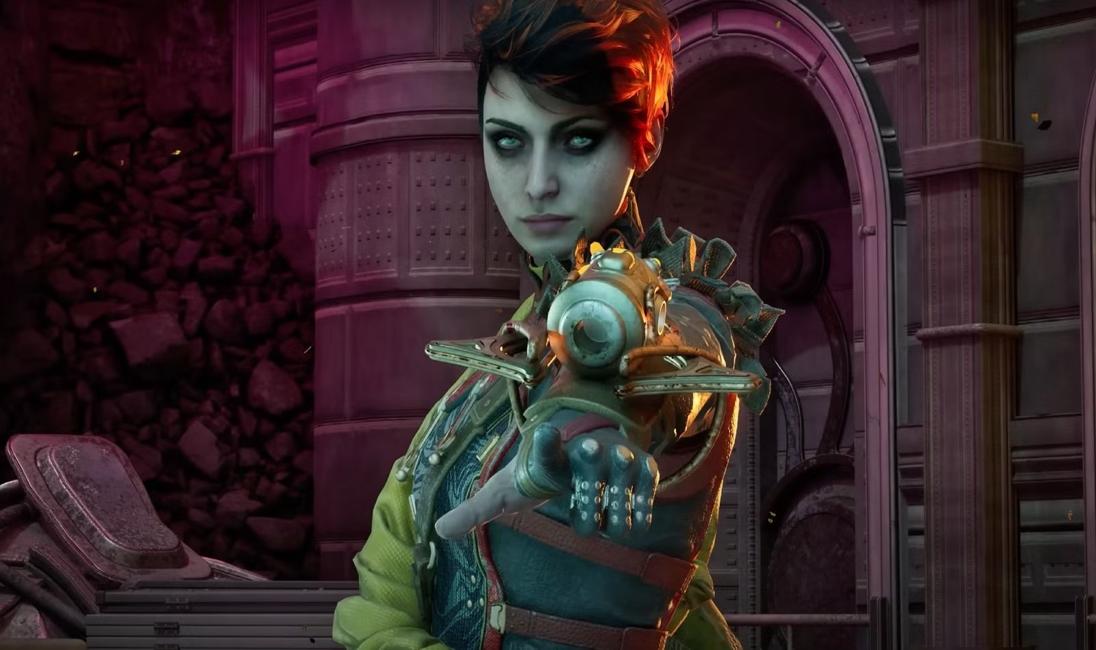Okay, let's be honest, the first Outer Worlds was… good. Solid, even. But it didn't quite reach the heights of, say, a Fallout: New Vegas. (I know, I know, comparing Obsidian games to New Vegas is practically a cliché at this point. But still.) One thing I really want to see in Outer Worlds 2? Consequences. Real, meaningful consequences. And maybe, just maybe, the ability for my companions to legitimately decide I'm a terrible leader and, you know, stage a mutiny.
Think about it. We've all been there. We're playing a supposedly morally grey character, making questionable choices for the 'greater good' (or just because it's funny), and our companions just… shrug. Maybe they offer a mildly disapproving comment. But they stick around anyway. That's not realistic! If I'm constantly siding with corporate overlords and crushing the hopes and dreams of the downtrodden, shouldn't Parvati start looking at me with increasing levels of disgust? Shouldn't she, at some point, decide enough is enough?
And it's not just about morality, either. What if my leadership skills are just plain awful? What if I'm constantly making tactical blunders, leading the crew into ambushes, and generally proving myself to be utterly incompetent? Surely, someone like Felix, who's all about self-improvement and proving himself, would eventually realize I'm holding him back. Maybe he starts plotting with Nyoka to overthrow me and install her as the new captain. See? Drama! Intrigue! Actual stakes!
More Than Just Dialogue Options: Meaningful Companion AI
I’m not talking about simply adding more dialogue options that let companions express their discontent. I want actual changes in their behavior. Maybe they start questioning my orders more frequently. Maybe they "accidentally" sabotage my plans. Or, and this is where it gets really interesting, maybe they start subtly influencing other crew members to turn against me. We also need to explore how games punish cheaters.
Imagine this: You're about to embark on a crucial mission, and suddenly, your ship's systems start malfunctioning. Turns out, SAM, bless his robotic heart, has been "re-programmed" by a disgruntled companion. Or you find yourself facing a particularly tough enemy, and your supposedly loyal medic, Parvati, starts "accidentally" dispensing the wrong healing items. (Okay, maybe Parvati wouldn't do that. But you get the idea.)
But there's something even more interesting here. The potential for replayability skyrockets. Imagine playing through the game multiple times, each time making different choices and seeing how your companions react. Maybe in one playthrough, you're a saint, and everyone loves you. In another, you're a ruthless tyrant, and you're constantly looking over your shoulder, wondering who's going to stab you in the back. That's the kind of dynamic I want to see.
The Technical Hurdles (and Why They're Worth Overcoming)
I've got to admit, implementing a system like this would be a technical challenge. It would require a significant overhaul of the companion AI, allowing them to make independent decisions based on your actions and the overall state of the game world. It would also necessitate a branching narrative that can accommodate a wide range of possible outcomes. AI in video games have been evolving but is still a challenge.
But here's the thing: the payoff would be enormous. It would create a more immersive, engaging, and ultimately memorable gaming experience. It would also set Outer Worlds 2 apart from other RPGs that offer the illusion of choice without the genuine consequences.
Consequences for My Actions? Yes, Please!
I initially thought the first game lacked some of the grit and moral ambiguity of other Obsidian titles. Part of that, I think, comes down to a lack of meaningful consequences for my in-game decisions. The world reacted, sure, but my companions? They were largely along for the ride, regardless of how chaotic or downright evil I decided to be.
Outer Worlds 2 has the potential to fix this. By giving companions their own agency, their own motivations, and their own breaking points, Obsidian can create a truly dynamic and unpredictable gaming experience. One where you're not just making choices in a vacuum, but actively shaping the relationships with the people around you. And, yes, one where those relationships can turn sour, leading to betrayal, mutiny, and maybe even a good old-fashioned space-western showdown.
Think about it this way: wouldn't it be amazing to have a companion turn on you, not because the plot demands it, but because you drove them to it? Because of the choices you made? That's the kind of emergent storytelling that I crave.
And honestly, it just makes sense from a role-playing perspective. I need my companions to feel like real people, with their own hopes, fears, and moral compasses. And real people, when pushed too far, tend to push back.
My Wishlist: More Than Just Killable Companions
Now, I'm not just saying I want companions to be killable. Though, let's be honest, that would add another layer of consequence, wouldn't it? But more than that, I want them to be reactive, intelligent, and genuinely capable of making their own decisions. Decisions that can directly impact my character and the overall story.
I want to feel like I'm leading a crew of individuals, not just a collection of interchangeable stat-boosting companions. I want to feel the weight of my decisions, knowing that every choice I make can either strengthen or shatter the bonds of loyalty that hold my crew together. I am aware of recent news on NeverAwake which does similar things with its characters.
And if that means facing a mutiny or two along the way? Well, bring it on. Because in the end, the most memorable stories are the ones where the stakes are high, the consequences are real, and the companions are willing to fight – even if it means fighting against you.
FAQ: Companion Catastrophes in Outer Worlds 2?
How likely is it that companions will betray you in Outer Worlds 2?
That's the million-dollar question, isn't it? It's impossible to say for sure what Obsidian has planned, but given their track record for creating complex and morally ambiguous narratives, it's certainly within the realm of possibility. The first game hinted at the potential for companion conflict, but it never fully materialized. Hopefully, Outer Worlds 2 will take that concept to the next level.
Why would Obsidian add companion betrayal to the game?
For starters, it adds depth and complexity to the gameplay. It forces players to think more carefully about their choices and how those choices impact their relationships with their companions. It also creates a more dynamic and unpredictable gaming experience, where anything can happen. Plus, let's be honest, it's just plain cool to see your companions react in believable and sometimes surprising ways to your actions. That is, it's the natural and most interesting, story progression.
What kind of actions could lead to a mutiny?
A whole host of things! Consistently siding with the enemy, making decisions that harm the crew, neglecting their personal needs, or just generally being a terrible leader could all contribute to a growing sense of discontent. Maybe even romancing the wrong companion could cause friction (if romance options are present, of course). The key is to make the consequences feel organic and believable.
Is this just wishful thinking, or is there any real evidence to support it?
Okay, full disclosure: this is largely wishful thinking. But it's wishful thinking based on a deep appreciation for Obsidian's previous work and a desire to see them push the boundaries of what's possible in RPGs. Plus, the gaming landscape is constantly evolving, and players are demanding more meaningful choices and consequences than ever before. So, who knows? Maybe Obsidian will surprise us all.





















